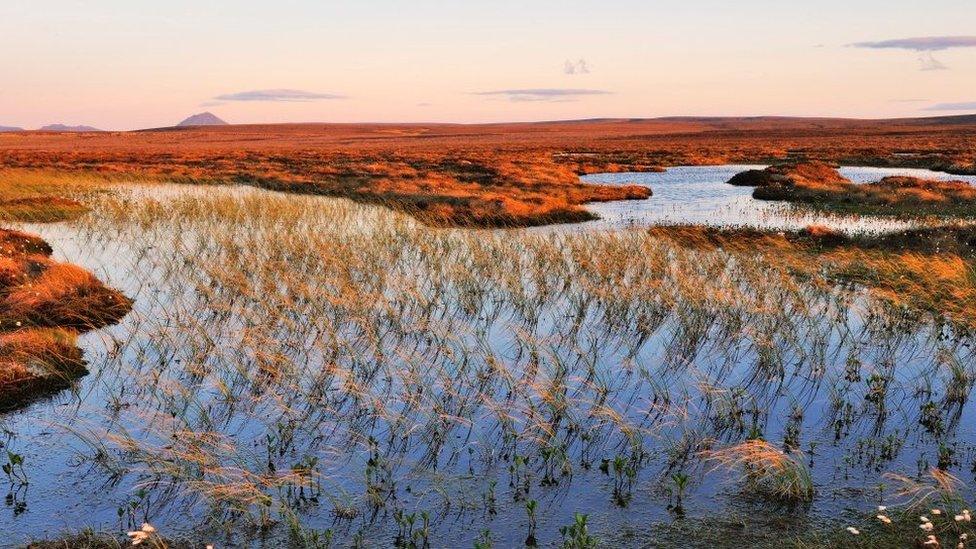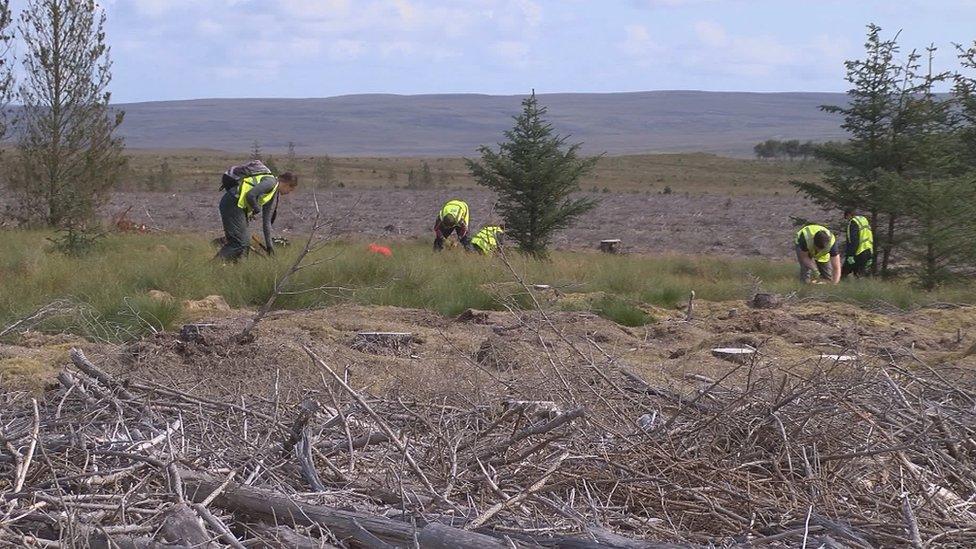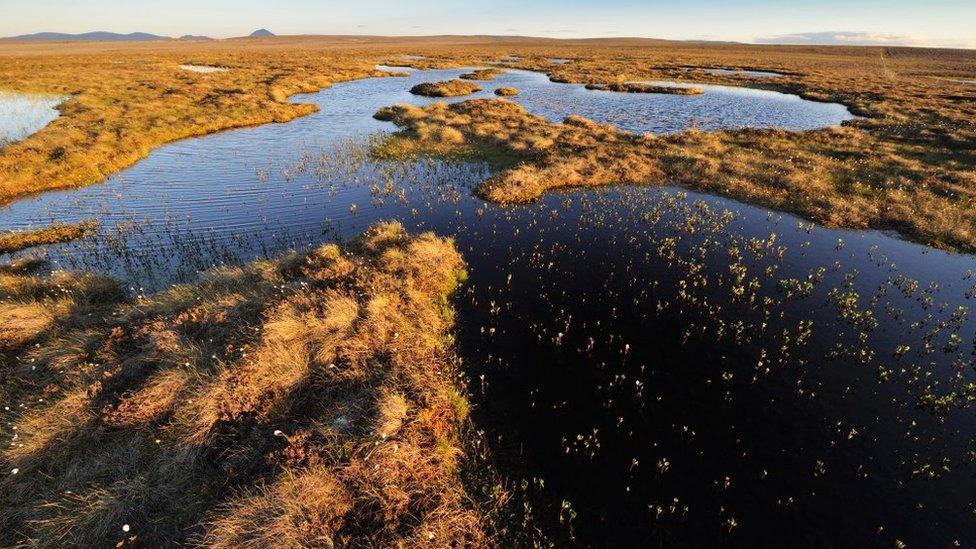Flow Country work to restore vital peatland
- Published

The Flow Country covers large areas of Caithness and Sutherland
A group of UK-based and international volunteers have begun work to restore a vital area of peatland to prevent huge amounts of greenhouse gases entering the atmosphere.
Known as the Flow Country, the 494,210-acre (200,000ha) expanse in Caithness and Sutherland was damaged due to non-native trees being planted in the area.
The group's objective now is to remove the trees and block up drains so wetland conditions return.
They hope the peat bog will continue to act as a giant carbon sink soaking up large amounts of carbon dioxide (C02) from the atmosphere.

The volunteers are removing non-native trees and blocking up drains in the area
RSPB warden Claire Foot-Turner said: "Some of the Flow Country in the 1970s and 1980s was planted with non-native conifers... in a drive to plant more forestry.
"Unfortunately it was planted on really important peatlands and as research has come on, peatlands, if they are in good condition - they can hold more carbon than the entire world's forest."
'Good condition'
Project manager Caroline Eccles said the area could play an important role as a carbon store.
"What happens is, this is blanket bog, and the peat stores carbon. That's because it's made up of the dead remains of plants that haven't fully rotted away, and plants are made of carbon.
"That carbon is sitting in the peat, and if the peat is in good condition, so it has a nice layer of sphagnum on the top..., well it's laying down more carbon, actively storing more carbon. That's really important for climate change because it's taking it out of the atmosphere."

What is the Flow Country?

Bogs in the tundra-like landscape have been growing since the end of the last Ice Age more than 10,000 years ago
The area's peat is up to 10m (33ft) deep
Its soil stores about 100 million tonnes of carbon
People live and work in the Flow Country and its communities include tiny Forsinard
Wildlife found in the area include otters, deer and common scoter ducks. In the UK, common scoters breed at only a few locations, including the Flow Country and the lochs and and glens near Inverness